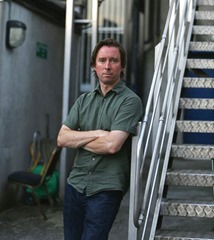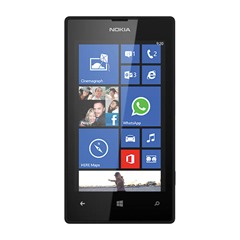Meet the Media: Adrian Weckler
 As Group Technology Editor with Independent News & Media, Adrian Weckler absorbs and analyses the digital changes that are changing our everyday lives. He discusses the changing nature of journalism and some emerging technological trends.
As Group Technology Editor with Independent News & Media, Adrian Weckler absorbs and analyses the digital changes that are changing our everyday lives. He discusses the changing nature of journalism and some emerging technological trends.
How did your career begin?
My first paid work as a journalist was with In Dublin magazine in 1997, where I worked for almost two years. I started the week after completing a degree in law but becoming a solicitor or barrister seemed like a boring thing to do. That was a fun place to work under editor Declan Burke – a former Sligo GAA star who is now a best-selling crime novelist.
I joined the Sunday Business Post in 1999 as its supplements editor before moving into technology coverage for the paper in 2001. I stayed with the Sunday Business Post for 14 years, eventually becoming its overall technology and digital editor, where I was responsible for re-launching the newspaper’s website and creating new iPhone and iPad apps for it. I then joined Independent News & Media in 2013, becoming group editor for technology across the Irish Independent and Sunday Independent.
How has digital technology changed print journalism?
It’s changed how journalists work and how media companies’ business interests have developed. Social media – which can still be regarded as digital technology – has obviously changed the way things are reported. It’s not just that celebrities and other traditional persons of interest now supply endless fodder for gossip pages and colour stories through their own tweets and Instagram photos. There is a new category of journalist who bases a large body of his or her work largely on what they see in their Twitter stream. This includes purportedly ‘serious’ columnists and commentators. Even as a fan of Twitter and social media, I find this to be a shallowing development.
On the business side of things, print journalism is beginning to emerge from a fog of self-delusion it has had over the last five years. While some journalists and editors still cling on to dull pre-digital mantras and slogans – “the problem is that everyone now wants their news for free” – most now accept that the way people want read or hear news has simply changed because of the smartphone in our pocket. And media business owners are belatedly starting to look for innovative new business models rather than simply moaning and blaming the internet for everything.
What do you see as the three big trends in technology over the next year?
1. Tablets have hit a wall and could actually see sales start to fall. This is because phones are getting bigger and most of us don’t really need a tablet when we have a five-inch phone;
2. More Irish businesses will start to use the web better. About half of Irish companies have little or no online presence. I believe that this is a generational thing which is slowly working its way out;
3. Online streaming will continue to snuff out rivals. The iTunes ‘download’ model is on its last legs as modern streaming processes, used by the likes of Spotify and Netflix, firmly take over.
Is there anything distinctive about covering technology in Ireland?
One of the distinctive narratives at present is how Ireland continues to develop as the Western world’s second most important technology location. That largely involves stories of industrial strategy, start-ups, taxation policy and education but there’s also a large dollop of culture thrown in.
 There are so many sides to what we call ‘technology’ coverage today that you really have to keep an eye on lots of things. There’s the latest iPhone. There’s the NSA spying on our email accounts. There’s the million-euro investment venture capitalist phenomenon.
There are so many sides to what we call ‘technology’ coverage today that you really have to keep an eye on lots of things. There’s the latest iPhone. There’s the NSA spying on our email accounts. There’s the million-euro investment venture capitalist phenomenon.
There’s the wireless spectrum release by the national telecoms regulator. There’s the development of kids’ coding in classrooms. These are all very different things straddling different areas but you’re expected to know more about all of them than most people.
Who inspires you the most?
Usually the last person whose biography I’ve read. I’m a bit of a sponge and can borrow energy or inspiration from many different people. I remember concluding that there was no real ceiling to what you could aim for in life when I read Walter Isaacson’s superior biography of Henry Kissinger.
How do you relax outside work?
At the start of this year, I did a bucket list. One of the items I chose was to get onto the stage. So I’ve acted in two plays (one serious play and one comedy) this year, both with LaTouche Players, whose main performance stage is at Theatre 36 in Dublin’s Parnell Square.
I’ve also recently taken up photography as a hobby.
This can be very rewarding, especially when capturing landscape or portraits but it’s a money-pit, especially when starting out.
Being a tech geek, I’m still slightly obsessed with trying out every lens and accessory that there is, which often brings me into conflict with my credit card’s sanity. I also like travelling, especially within the US and around the west of Ireland.





